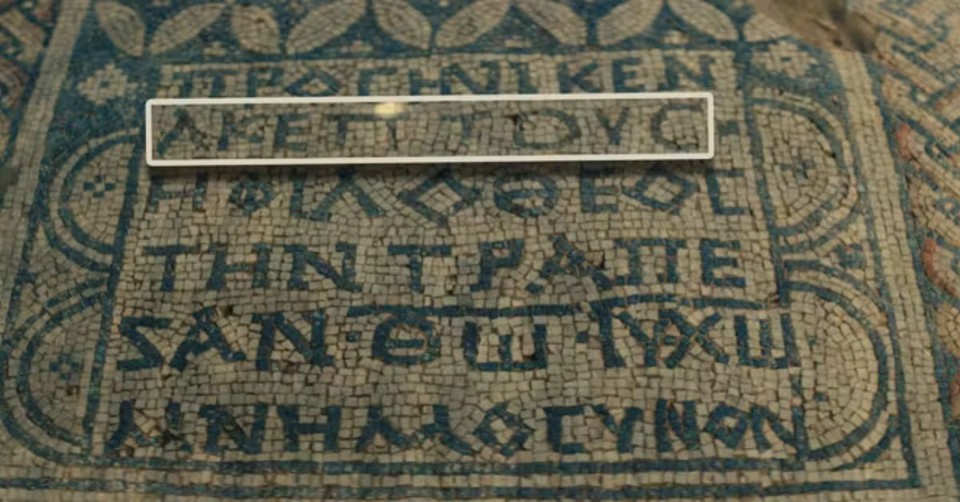3rd-Century Inscription Affirming Jesus as God Is ‘Nail in the Coffin’ of Skeptics, Apologist Says

A third-century archaeological discovery describing Jesus as God should serve as definitive evidence against skeptics who argue that Christ's deity was "invented" at the Council of Nicaea, according to a prominent apologist. The Akeptous Inscription, uncovered in northern Israel, dates to 230 A.D. and references a woman named Akeptous who is devoted to "God Jesus Christ." In full, the inscription reads: "The God-loving Akeptous has offered the table to God Jesus Christ as a memorial."
Significantly, the inscription -- which is part of a mosaic -- was made a full century prior to the Council of Nicaea (325), which affirmed the deity of Christ.
The Akeptous Inscription is currently on display at the Museum of the Bible.
"I can't believe more attention is not being paid to this. It's that significant," apologist Sean McDowell said on his podcast The Sean McDowell Show.
McDowell interviewed Christopher Rollston, an epigrapher at George Washington University, to explain the historical and theological significance of the inscription.
"It's really consequential," Rollston said.
The mosaic "describes her as a friend of God or a lover of God, and it mentions basically that there was a table which was dedicated, in essence, as a memorial to God, Jesus Christ," Rollston said.
"Scholars don't generally suggest that the divinity of Jesus was a notion invented at Nicaea," Rollston said. "But you hear it an awful lot in other contexts."
McDowell said the inscription has a major impact on such debates.
"I never thought the divinity of Jesus was invented at the Council of Nicaea," McDowell said. "The evidence is too strong, but this just puts the nail in the coffin to that definitively."
Rollston said it's "really fascinating" how archeology "often dovetails with textual material" -- not only Scripture but also the writings of the church fathers.
"This inscription, though early third century, makes the declaration very clearly and emphatically that Jesus was divine," Rollston said. "... Not all Christians believed in the divinity … but it was the predominant view among early Christians that Jesus was divine. And this inscription, therefore, is fascinating because it's pre-Nicaean."
Pushing back against skeptics of the 230 dating, Rollston said, "I think the date will stand up to scrutiny."
"And so this is a really early reference to the divinity of Jesus," he said.
WATCH: STUNNING Early Christian Inscription from Armageddon: "God Jesus Christ"
Photo Credit: ©Museum of the Bible
Michael Foust has covered the intersection of faith and news for 20 years. His stories have appeared in Baptist Press, Christianity Today, The Christian Post, the Leaf-Chronicle, the Toronto Star and the Knoxville News-Sentinel.
Listen to Michael's Podcast! He is the host of Crosswalk Talk, a podcast where he talks with Christian movie stars, musicians, directors, and more. Hear how famous Christian figures keep their faith a priority in Hollywood and discover the best Christian movies, books, television, and other entertainment. You can find Crosswalk Talk on LifeAudio.com, or subscribe on Apple or Spotify so you never miss an interview that will be sure to encourage your faith.
Originally published December 19, 2024.







